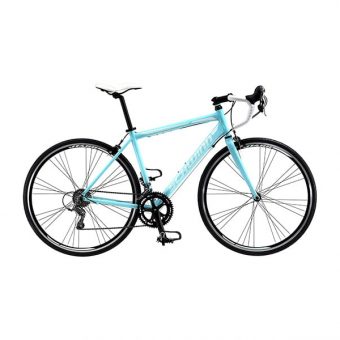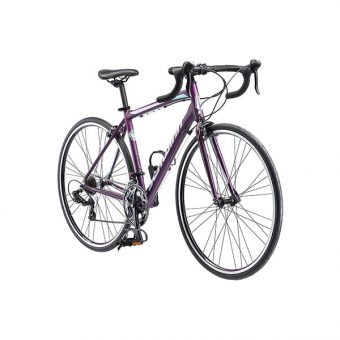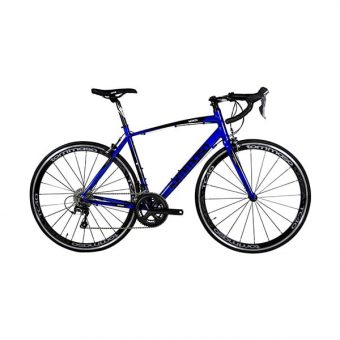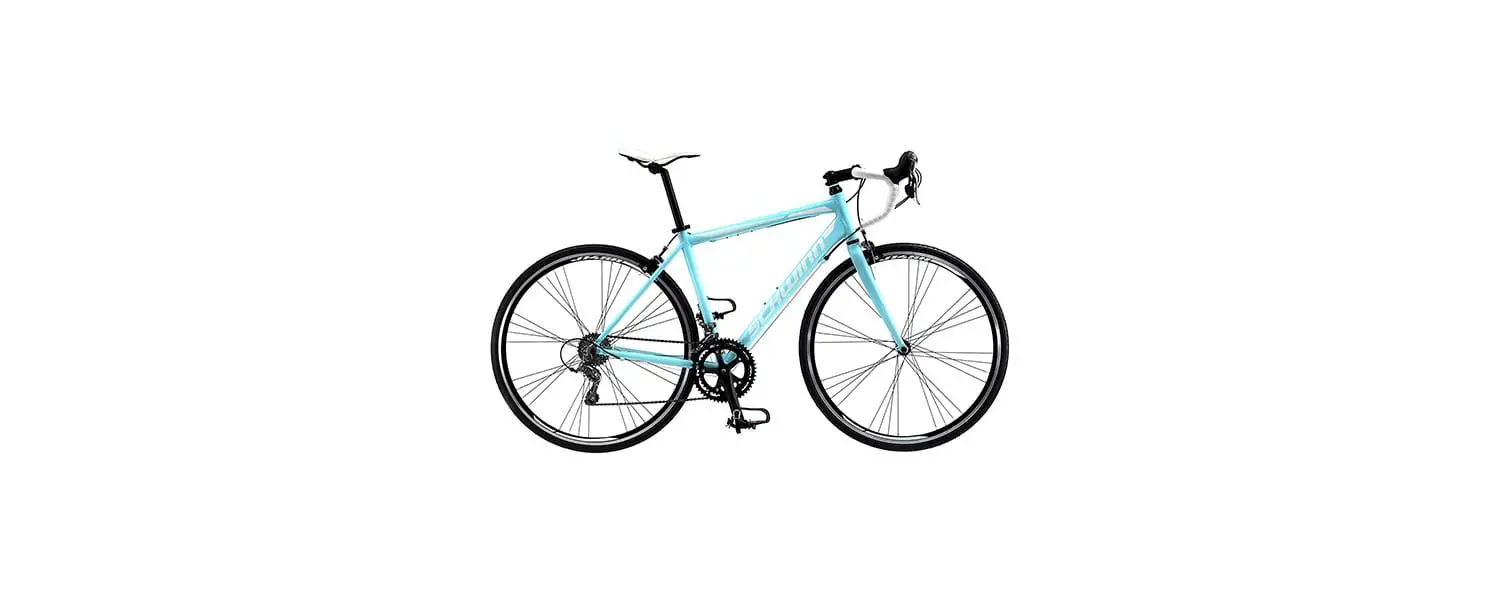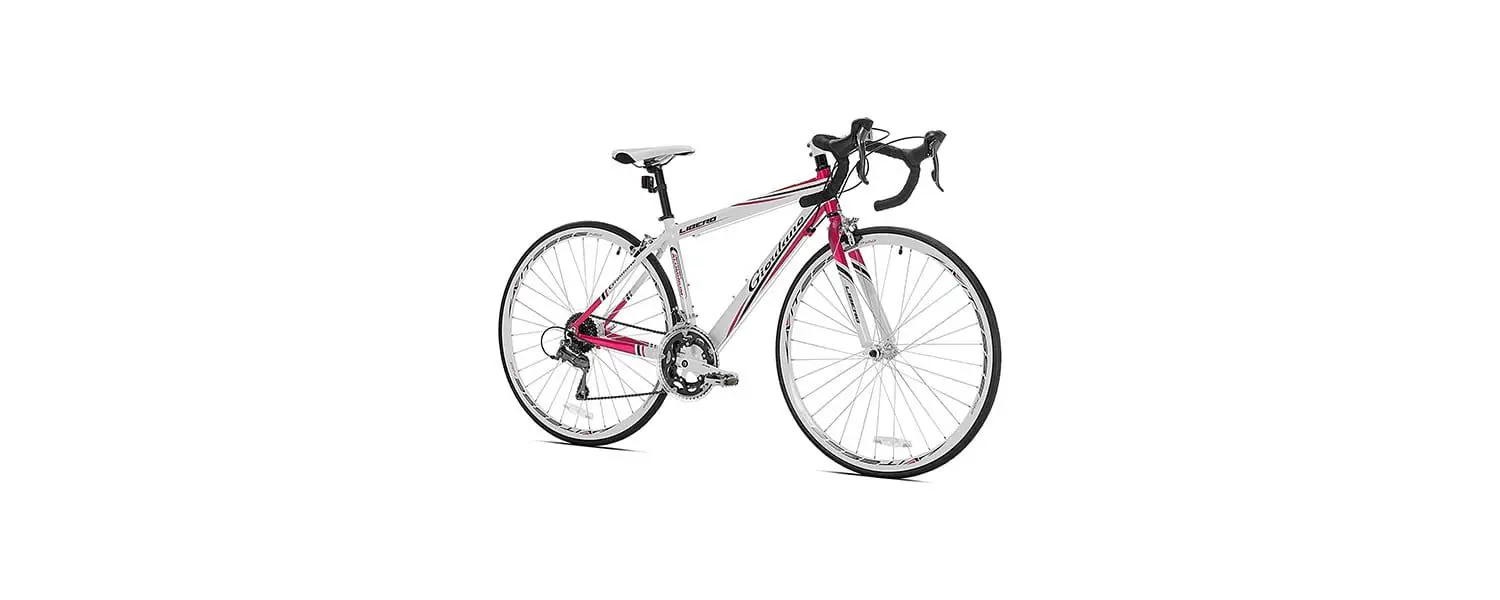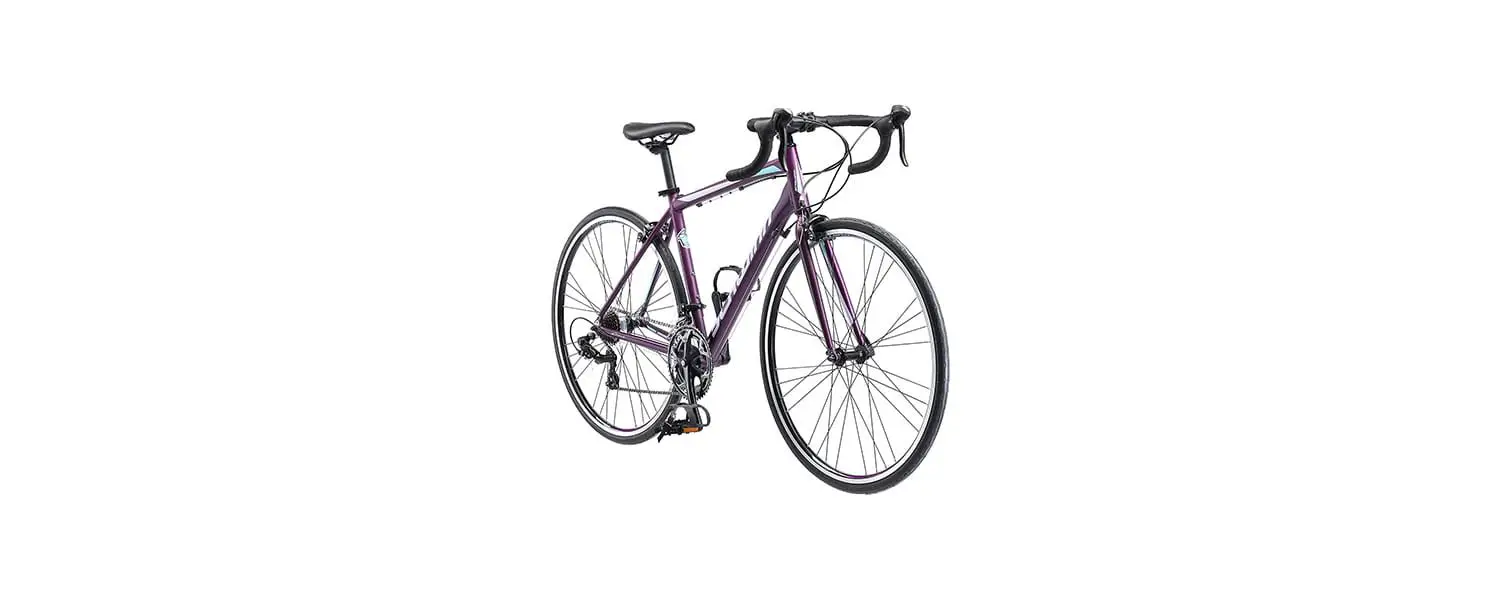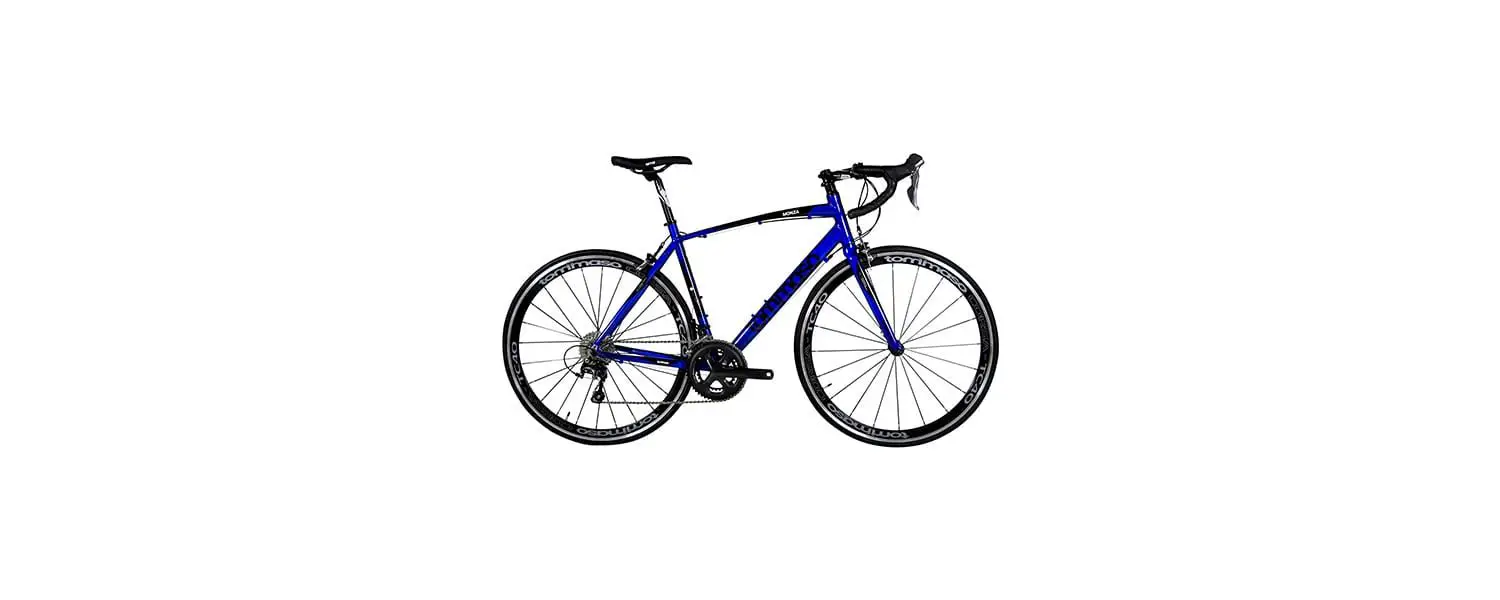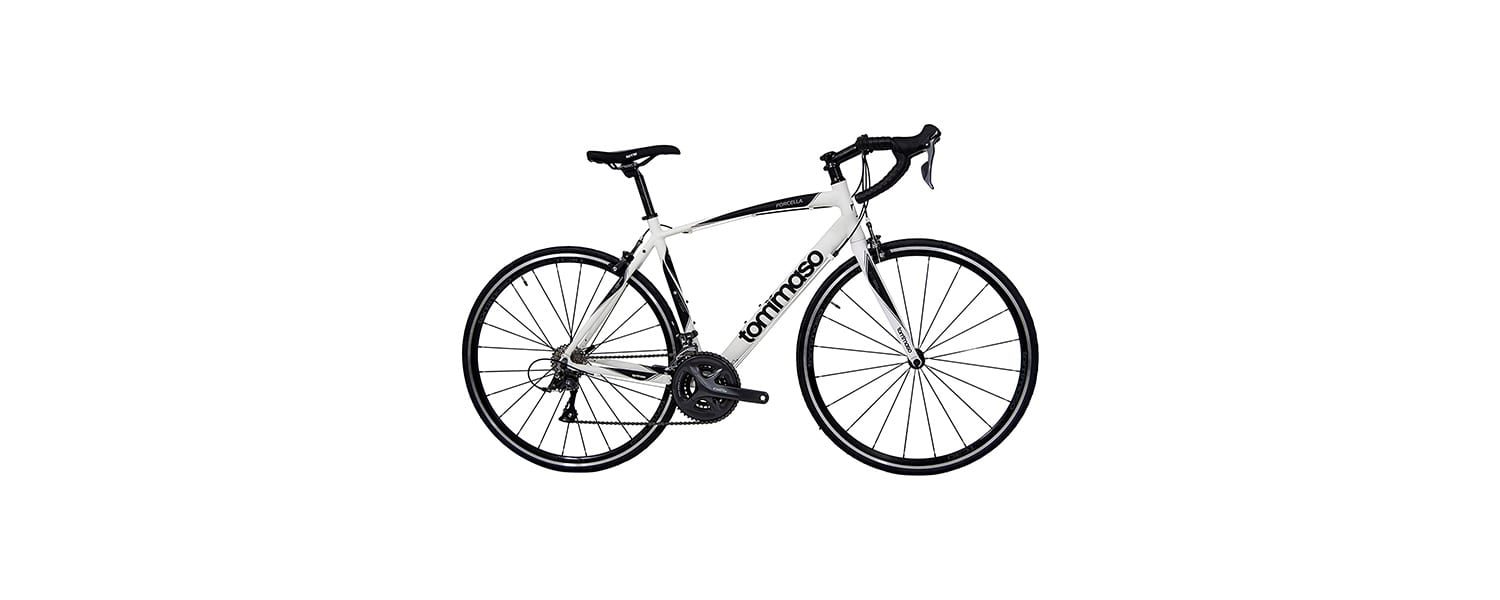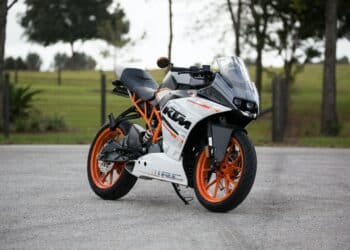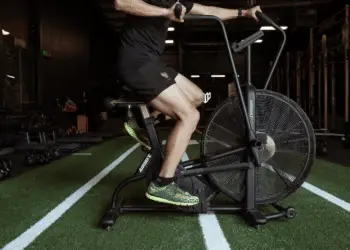Top Picks
Table of Contents
Roads and adventures are not only for men but for women as well which is why we can see more and more women who become into biking nowadays. When it comes to the bikes as you hit the road, the Frequently Asked Question is, “Are there any bike distinctions from what men and women use?” Well, they are quite the same in purpose however, there is a bit of distinction between them- versatility and design. A typical woman’s bike is, the top tube of the bike is slanted or shorter this is due to the fact that women have short torsos and long legs compared to men. For a man and women of the same height, the woman’s bike will likely be shorter in length, but the seat will be higher up. But, if a woman prefers to use a man’s bike, then she can do so as long as she feels comfortable with it.
Do you already have a bike? Well, if you do, it is essential to note that there are different things to take into consideration if you are going to buy a road bike for women. When choosing the bike, of course, you will not just look at the overall build and design of the bike as the sole factor in choosing your bike. Yes, there may be shiny and wonderfully designed new bikes in the market but mind you, you should not be overwhelmed with these options. Thus, before you get one, make sure to understand the basic Buyer’s Guide for bikes. If you do not know where to start, then this article will help you out in every possible factor you have missed out when choosing one for you.
Our Top 5 Best Women’s Road Bikes
Schwinn Phocus Road Bike
The Schwinn Phocus Road Bike is built for women. Light and fast, this road bike for women is constructed from lightweight aluminum with a carbon fiber fork for suspension. Powering this road bike is a Shimano 16 speed drivetrain with micro shift integrated levers.
For precise stops, the Schwinn Phocus Road Bike is equipped with Promax alloy caliper brakes. It also sports high profile alloy rims and a tripe crankset that offers a wider gear range that its counterparts.
Giordano Libero 1.6 Womens Road Bike
The Schwinn Phocus Road Bike is built for women. Light and fast, this road bike for women is constructed from lightweight aluminum with a carbon fiber fork for suspension. Powering this road bike is a Shimano 16 speed dri
The Giordano Libero 1.6 Women’s Road Bike is lightweight — perfect for women! This road bike is made from a light yet durable 6061 aluminum frame with Shimano rear derailleurs and a 1 ⅛” threadless alloy 100mm stem.
Designed for easy gear shifting, this road bike sports the 16-speed Shimano Claris STI. And as a bonus, it also comes with two water bottle mounts.
vetrain with micro shift integrated levers.
For precise stops, the Schwinn Phocus Road Bike is equipped with Promax alloy caliper brakes. It also sports high profile alloy rims and a tripe crankset that offers a wider gear range that its counterparts.
Schwinn Volare Road Bike
In its strikingly purple color, the Schwinn Volare Road Bike is a must-have. This women’s road bike is constructed using aluminum while its suspension fork is crafted from high tensile steel. For precise shifting, the Schwinn Volare Road Bike comes with the 14 speed Shumanot derailleur with integrated shifter and brake lever.
Shipped with Schwinn’s oversized tires, the Schwinn Volare Road Bike will give you a smooth biking experience wherever you go. Thanks to its double-wall alloy rims that are both durable and light. This road bike for women comes with an aluminum handlebar, stem, and seat post.
Tommaso Monza Road Bike
The Tommaso Monza Road Bike is lightweight, making it an ideal choice for women who wants to enjoy the thrills of road biking. This bike’s aluminum compact frame comes with an HCT carbon fork for suspension. It also comes with drill holes for bike racks and fenders.
Powerful, this bike sports a Tiagra crankset and cassette that offer a huge range of speed. The drivetrain is coupled with Shimano Tiagra STI shifters for lightning-fast shifting on the road. Designed with your comfort in mind, the Tommaso Monza Road Bike comes with premium compact handlebars and an adjustable seat post.
Tommaso Forcella Women’s Road Bike
Another quality product from Tommaso, this women’s road bike is made from lightweight aluminum with HCT carbon fork for suspension. Designed for speed, the Tomasso Forcella Women’s Road Bike sports a Shimano Claris crankset and cassette that’s perfect for all types of terrain — be it hills, gravel, or road. The drivetrain is paired with Shimano Claris STI shifters for quick, effortless shifting while on the go.
Boasting its compact frame geometry, the Tomasso Forcella Women’s Road Bike is designed for comfort and efficiency. It comes with an adjustable seat post and drilled holes for fenders and racks.
The Tips and Tricks for Buying a Bike
1. Identify what bike types suit you
There are different bike types for women. This can be mountain, road, hybrid, or city/commuter. Each type mentioned serves a different purpose. If you prefer road and mountain adventures then what you need is a mountain bike. This kind of bike is good for riding in different terrains. The typical mountain bike structure has wide, knobby tires for balance and strength, a flat handlebar for easy, comfortable maneuver, strong brakes and shock-absorbing suspension that’s made for rough, unpredictable trails.
The second type is the so-called hybrid bicycles. They are specialized road bikes because they are made from the blended features of the different bike types. This kind of bike is especially made to serve a general purpose and applications which is to cover a distance with paved or unpaved bike trails. Although it is said to stand a huge spectrum of riding conditions, you should bear in mind that they are not supposed to be used in a rough road trail because hybrid bikes are not as efficient as the mountain bikes and are usually heavier in comparison to other bike types used for off-road biking. A typical characteristic of the hybrid bikes are bikes have front suspension to smooth out small bumps but some are fully rigid.
The last type of bike is the commuter or city bike. The name itself implies that this kind of bike is used for transportation. They cover distances but they are not intended for long rides and the bike itself do not have extra features. This bike is fit for riding every day in the home or in the office.
This factor, which is selecting the type of bike that best suits your needs entail to answer the questions “What distance would I want to cover?” and “What usual terrains do I ride when I use the bike?”. These questions will help you choose the best for you.
2. Bike Features
After identifying what bike type is your preference, you will have to decide next the appropriate bike features. This decision is vital because it will define the overall performance of your road bike.
Wheels
As it has been said wheels can either make or break your ride thus, choosing your bike’s wheel is essential in buying your bike. As a general rule of the thumb, the wheel should only have the right size—not too big and not too small. Remember, commuter bikes use the standard wheel size because they just entail smoother trails however for rough terrains, you must remember to use a larger and more stable wheel to keep your balance and ensure durability in case of accidental and natural wheel prick.
In addition, since getting stuck with an exploded or torn wheel is very impractical, then as a biker, you should ensure the durability of your wheel. Most bikes nowadays come with double walled surfaces to make sure the wheel will not easily tear or explode. Again, you should take note that it is all about the terrains. Of course, you need sturdier and thicker wheel type if you will travel some rough terrains. Also, you should know that a tire with a lot of treads is great for off-road adventures.
Suspension
Also, as to how much suspension you need, it is all up to you. Most suspensions range between 4 and 8 inches of travel. Furthermore,
Frame Materials
Your riding style should also match the kind of frame your road bike will have. The normal frame material used in bikes is aluminum. The key characteristics of aluminum are it is lightweight and durable. Another type of frame material used for bikes is steel. In comparison to aluminum, the steel weighs a lot more. Carbon fiber is also another type of frame material used for bikes; it offers the best lightweight flexible and strong features. This is recommended for persons who bike for adventures and trailing, however, the disadvantage of carbon fiber frames is they are not cheap. It will cost you a lot of money but if you will consider your bikes as an investment, then this is the right one for you.
3. Seat
Every rider desires a comfortable feel during each ride thus, it is very practical to choose and change the seats that comes with the bike if you do not feel relaxed with it. The typical bike seat is made from tough materials which will cause you an uncomfortable feeling when you ride most especially in your travel adventures. The best solution to this is to change the seat depending on your preference. Make sure that when choosing one, you will not just feel comfortable but also no pain when riding.
There is what we call an ergonomic seat which promotes 100% comfortability as you ride. This type of seat prevents your back from stiffing when you are hitting the road. This seat has well-padded seats to protect your butt from bumps.
4. Brakes
Another vital component of a bike are the brakes since they control your ride. There are basically two types of braking systems. The first one is the traditional brakes with levers in your handles. This kind of break is very easy to use most especially when your aim is to stop the bike quickly. The second type of braking system is the one on the pedals.
Furthermore, we have the general types of breaks—padded and disc brakes. The common type is the padded breaks. You can easily see and replace the padded breaks while the disc brakes are not. However, the good thing about the disc brakes is they last longer and they have a better response time as compared to the latter. To get a more comprehensive view about bike brakes, you need to research some more on the specific details and tips.
5. Gears
Whatever type of bike you possess, you need your gears. Some other bike users may not understand what gears are for but these gears are mechanical instruments that allow you to speed up along flat surfaces or give strength and power to your bike as you climb on high steeps or during rock climbs swiftly with less difficulty.
The question now is, do you know how to use your gears? If not, then you should at least know the basics so that you can use or equip your bikes with a smooth, fast and fun ride in all your adventure trips and travels. It requires constant practice to make a skill perfect and since using bike gears needs skill, then you should spend time to practice it. Start by learning how to switch gears. First timers find it hard to change gears but at some point, you will get used to it through constant use and practice. If you learn how to switch gears, try to hit on the road.
Typically, most of the bikes will have two sets of gear cogs. The front set, known as the chainrings, will give you big changes in gear. The front derailleur that shifts the chain between these chainrings is controlled by the left gear lever (or shifter).
The rear cogs (or sprockets) together form the cassette, and the derailleur that shifts the chain up and down these is controlled by the right shifter. If you’re planning on getting a bike with a gear shifter, you should look for one that has at least 21 speeds to ride in different terrain.
As a last tip, it is good and fitting to remember that you should not change your gears to quickly because it will cause the chain to jump off the gears which only means messy and greasy fingers. To avoid this, shift the gears gradually to ensure that the chains engaged in each new gear. Each bike has different gear systems hence, you should get to know your bikes, test your gears out to know when to shift and how sensitive your bike when it comes to shifting gears.
6. Aerodynamics
Biking into stiff winds is very much exhausting and every bike rider knows about this. Hence, one should be able to push the mass of air in front of her (wind resistance) so that he can move forward. As it is said, it requires a lot of energy to do it. Thus, as a remedy, bikes depending on the models and types have this so-called aerodynamic efficiency so that the air will be cut for a smooth, speedy and easy ride. Aerodynamics is one factor that a cyclist should consider before buying a bike. Good aerodynamics mean faster performance in terms of speed with just little effort in doing so.
As of today, there are so many bike models with great improvement of bike frames and components to increase aerodynamic performance. In connection to this, a cyclist should always remember that wind friction and drag caused by wind resistance are not just reduced through improved bike structures but also through appropriate body positioning. Take note that reducing the frontal area helps riders increase their speed and their efficiency over time. In addition to positioning, small details like clothing can also make a big difference in reducing “skin friction.” This is the reason why tight-fitting synthetic clothing are specially designed for professional riders to improve aerodynamics performance and increase riding comfort.



